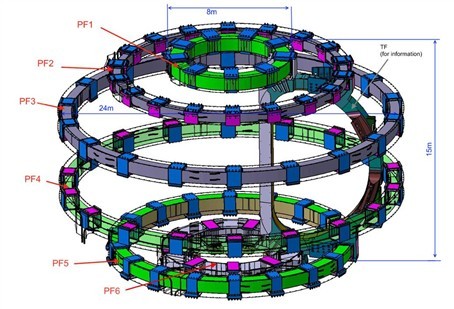PF coils Engineering Integrator contract signed


F4E has signed the contract for the Poloidal Field (PF) coils engineering integrator (EI). Awarded to ASG and worth approximately EUR 27.5 million, this contract is the first of a number of work packages which will cover tooling (equipment necessary in order to manufacture and handle the components), site and infrastructure, manufacturing and cold testing. These work packages are currently being prepared in order to provide F4E’s contribution of PF coils 2–6 (PF coils 2–5 will all be manufactured in Europe, while PF coil 6 will be manufactured in China, but cold tested in Europe; the Russian domestic agency will procure PF coil 1). The PF coils contribute to generating the magnetic field to control the plasma position, maintaining the plasma’s shape and stability inside the tokamak in order to provide the conditions for the fusion reaction. The PF coil system consists of six horizontal, circular coils placed outside the toroidal magnet structure. As their very large size makes it impossible to transport them, manufacture of four of the six PF coils will take place in the PF coil winding building, directly on the ITER site in Cadarache, France.
The ASG EI team is composed of approximately 20 engineers working to issue the manufacturing plan (developing plans in support of rigorous quality assurance, control of manufacturing activities and establishing a production time schedule) to define the manufacturing layout and workflow, as well as to issue the manufacturing drawings and procedures for the production of all four PF coils. ASG will also support F4E in the procurement of the tooling and equipment for component manufacture; in addition, they will supervise the manufacturing and cold-test activities (the final acceptance test which involves cooling the coil to a low temperature of 80 °K in order to reproduce thermal stresses similar to the ones experienced in the operating conditions in the ITER machine).
The focus will now be on implementing the EI contract and negotiating the next procurement, which is for winding tooling (expected to be signed during the first quarter of 2014). It is envisaged that the calls for tender for the other remaining contracts (except the contract for the cold-testing facility) will be launched during 2014